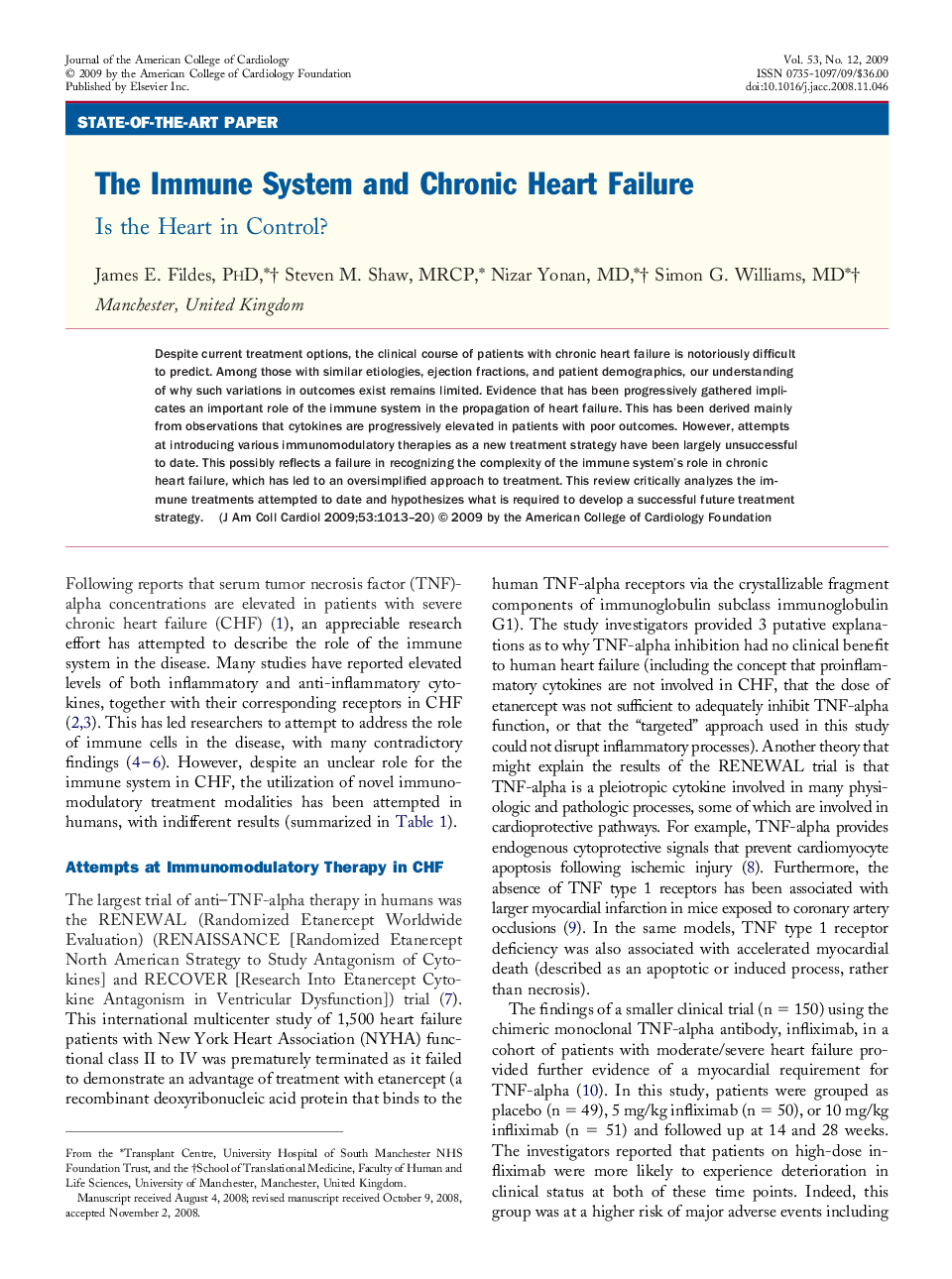| Article ID | Journal | Published Year | Pages | File Type |
|---|---|---|---|---|
| 2952816 | Journal of the American College of Cardiology | 2009 | 8 Pages |
Despite current treatment options, the clinical course of patients with chronic heart failure is notoriously difficult to predict. Among those with similar etiologies, ejection fractions, and patient demographics, our understanding of why such variations in outcomes exist remains limited. Evidence that has been progressively gathered implicates an important role of the immune system in the propagation of heart failure. This has been derived mainly from observations that cytokines are progressively elevated in patients with poor outcomes. However, attempts at introducing various immunomodulatory therapies as a new treatment strategy have been largely unsuccessful to date. This possibly reflects a failure in recognizing the complexity of the immune system's role in chronic heart failure, which has led to an oversimplified approach to treatment. This review critically analyzes the immune treatments attempted to date and hypothesizes what is required to develop a successful future treatment strategy.
